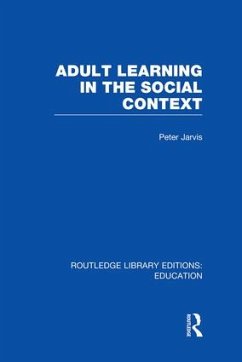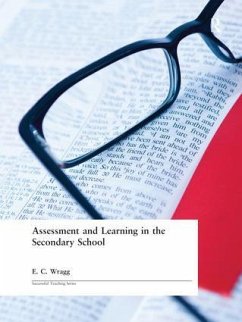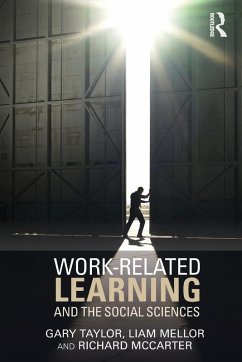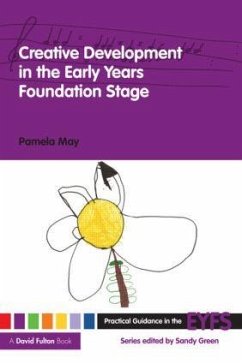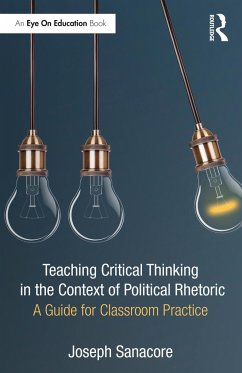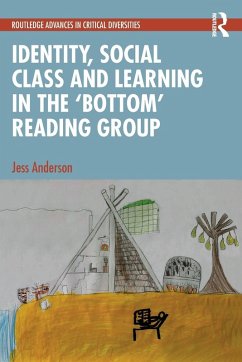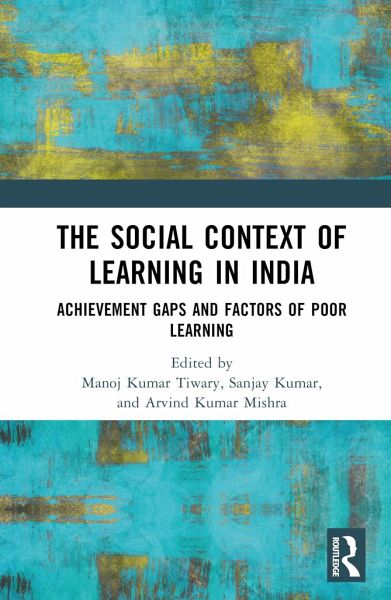
Gebundenes Buch
The Social Context of Learning in India
Achievement Gaps and Factors of Poor Learning
Herausgeber: Tiwary, Manoj Kumar; Mishra, Arvind Kumar; Kumar, Sanjay
Versandkostenfrei!
Versandfertig in 1-2 Wochen

PAYBACK Punkte
75 °P sammeln!




The volume delves into the problem of academic underperformance from a social identity perspective and probes into social context-based variability in classroom learning, systemic disadvantages in the form of negative stereotypes and the family as an under-studied social group in all discussions of schooling.
Manoj Kumar Tiwary is an educationist and research fellow for a number of organisations based in India and the Netherlands. His research explores the social history of education, teacher training, and learning achievements, with a particular focus on Bihar. Sanjay Kumar is a scholar, practitioner, and founder of Deshkal Society, Delhi, India. He has been working in the areas of social diversity, inequality, and education for more than one and a half decades both in practice and scholarship. His articles, monographs, and occasional papers have been published in journals and magazines. He is the co-editor of various books: Interrogating Development: Insights from the Margins; School Education, Pluralism and Marginality: Comparative Perspectives; and Dynamics of Inclusive Classroom: Social Diversity, Inequality and School Education in India. His recent co-edited publication is The Marginalized Self: Tales of Resistance of a Community. Arvind Kumar Mishra teaches Social Psychology at Jawaharlal Nehru University, New Delhi. He is the co-editor of four books: Interrogating Development: Insights from the Margins (2010); School Education, Pluralism and Marginality: Comparative Perspectives (2012); Dynamics of Inclusive Classroom: Social Diversity, Inequality and School Education in India (2017); and The Marginalized Self: Tales of Resistance of a Community (2020). His research papers have been published in prestigious journals such as the American Journal of Orthopsychiatry and the Journal of Social and Political Psychology. His research interest focuses on theoretical and philosophical issues in psychology, resistance to modernity, self, and identity processes among marginalised communities.
Produktdetails
- Verlag: Taylor & Francis Ltd
- Seitenzahl: 182
- Erscheinungstermin: 9. Mai 2023
- Englisch
- Abmessung: 240mm x 161mm x 15mm
- Gewicht: 386g
- ISBN-13: 9781032195698
- ISBN-10: 103219569X
- Artikelnr.: 67400875
Herstellerkennzeichnung
Libri GmbH
Europaallee 1
36244 Bad Hersfeld
gpsr@libri.de
Für dieses Produkt wurde noch keine Bewertung abgegeben. Wir würden uns sehr freuen, wenn du die erste Bewertung schreibst!
Eine Bewertung schreiben
Eine Bewertung schreiben
Andere Kunden interessierten sich für


